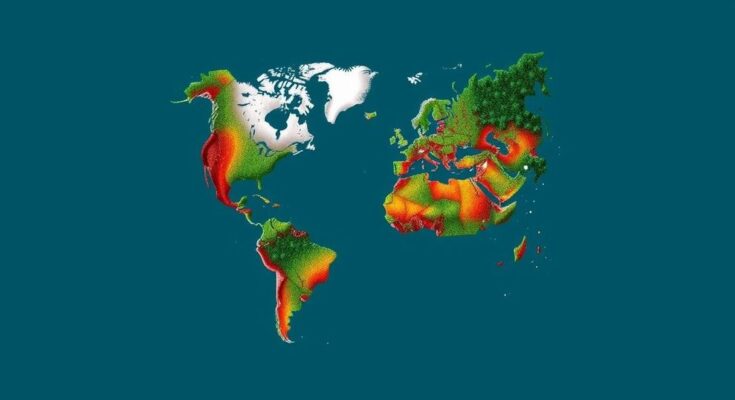At COP29, developed nations pledged to increase climate aid to $300 billion by 2035, up from $100 billion. This commitment was deemed insufficient as developing nations require $5.8 trillion by 2030 to address climate impacts. Experts expressed concerns over the effectiveness and urgency of the financial support, highlighting the necessity for a reevaluation of international climate agreements.
The recent COP29 climate summit in Baku has concluded with developed nations pledging to increase their climate financing from $100 billion to $300 billion annually by 2035 to support developing countries in building renewable energy infrastructure and adapting to climate change. However, this amount falls drastically short of the $5.8 trillion that developing nations require by 2030, as highlighted by the United Nations Framework Convention on Climate Change. The negotiations extended late into the night, indicative of the escalating tensions and the urgency of reaching a consensus, yet many experts regard the outcome as insufficient to combat the dire climate crisis effectively.
During the summit, UNFCCC Secretary-General Simon Stiell characterized the financing commitment as an “insurance policy for humanity” while stressing the importance of prompt funding contributions to protect at-risk populations. Experts including Ottmar Edenhofer and Johan Rockström criticized the outcome, labeling the financial target as “too little, too late” and asserting the necessity of transforming global economic practices, especially regarding fossil fuel dependency.
Reactions from representatives of developing countries were predominantly critical, with leaders voicing concerns that the agreement did not adequately address the scale of the crisis they face. The process was marked by frustrations related to the U.S. stance on climate diplomacy, which some observers felt undermined effective negotiations. Despite the challenges presented, the urgency for action remains heightened, as demonstrated by the recent catastrophic climate events occurring during the talks, highlighting the immediate need for committed climate finance and equitable solutions.
Climate envoy Tina Stege of the Marshall Islands expressed the disappointment of vulnerable nations at the summit, condemning the lack of significant progress, while emphasizing the collective responsibility of all nations to prioritize lives over political games. Mary Lyons, a spiritual leader, called for a fundamental re-evaluation of humanity’s relationship with nature, pressing for unity in addressing the pressing issues at hand.
COP29 once again highlighted the disparity between national commitments and the actual financial support needed to address climate change effectively, raising the question of whether the current frameworks for international climate negotiations are adequate as the planet continues to face severe environmental challenges.
The COP29 summit, held in Baku, aimed to address international climate finance and support for developing nations facing significant impacts from climate change. Funded primarily by developed countries, the proposed increase from $100 billion to $300 billion annually for climate aid fails to meet the urgent and escalated requests from developing nations, which cite the need for substantially larger amounts to mitigate climate influences. Discussions extended past their scheduled conclusion, indicating persistent discord regarding commitments and responsibilities among nations, echoing trends from past conferences.
In summary, the COP29 summit concluded with an inadequate financial commitment from developed countries, which experts believe does not address the urgent demands from developing nations for climate resilience and adaptation funding. The criticisms reflect the ongoing challenges in climate diplomacy, where the gap between pledges and needs continues to widen. The discussions underscored the pressing need for comprehensive strategies and collective accountability to combat climate change effectively.
Original Source: e360.yale.edu




